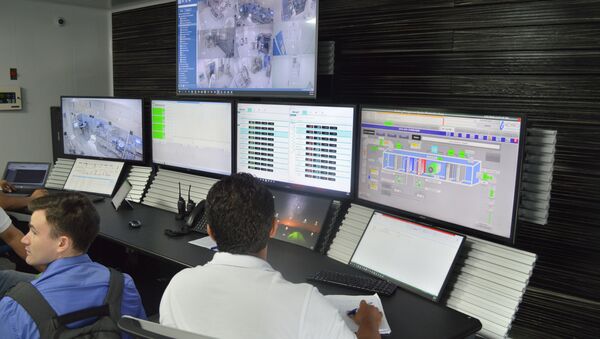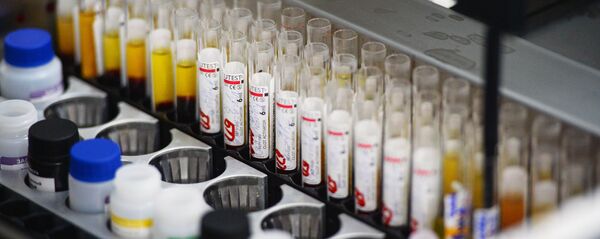If you're looking for a particular address in Nicaragua — be prepared for a one-of-a-kind quiz in history and geography. There are no addresses in the conventional sense and venues are described with reference to local landmarks. So, a typical postal address in this Central American country would probably look like "From the Merced Church, one block south, half a block east". But if you ask locals in the capital Managua where the "Institute Mechnikov" is, it's likely that they would show you the venue without additional reference points.
The newly-built vaccine plant looks futuristic in comparison to the rest of Carretera Norte neighborhood. Named after Russia’s famous 19th century immunology pioneer Ilya Mechnikov, the venue has already become Managua’s landmark. pic.twitter.com/oVbK53sw45
— Denis Bolotsky (@BolotskySputnik) 11 апреля 2019 г.
Inside the compound, there is a state-of-the art production line, capable of producing hundreds of thousands of vaccine doses per day. The equipment has been supplied by major European manufacturers.
To get inside Mechnikov’s labs you have to wear protective clothing and undergo disinfection. Here you see the first batches of influenza vaccine produced in Central America. The product is adapted to influenza types which are found in this hemisphere. pic.twitter.com/bpnXRPpoTd
— Denis Bolotsky (@BolotskySputnik) 11 апреля 2019 г.
Those who built Mechnikov labs say that unlike regular pharmacology, making vaccine has a strong “design feel” to it. They are certain that working with living culture has a "magic" compontent to it as opposed to using a formula to produce a pill. pic.twitter.com/iUiKtVdyPs
— Denis Bolotsky (@BolotskySputnik) 11 апреля 2019 г.
Most employees at the Institute Mechnikov are either Russians, Nicaraguans who studied in Russia, or people with mixed background, like the plant's IT chief Marcelo Munos, who has Russian and Ecuadorean roots. He works in the heart of the facility — a control room with CCTV feeds and assembly line data on dozens of monitors.
"I speak three languages and I'm trying to capacitate my colleagues to use all these systems", Munos told Sputnik. "Many of them didn't work with these systems, so after we installed them, we also provided training for the personnel".
READ MORE: Russian Healthcare Ministry Creates New Powder Vaccine Against Ebola
Roberto Lopez is the president of Nicaragua's Institute of Social Insurance. He told Sputnik that the facility made it possible for Nicaragua to acquire new technology, and that, in turn, will give his country easier access to cheaper vaccines:
"It will help us to train staff, to start using equipment capable of producing biotechnological products which are in high demand both locally and globally. Whatever we buy at the moment — we pay very high price for it, so this plant will give access for Latin American countries to hi-tech medical products at a fair price".
Russia's Deputy Health Minister Sergey Krayevoy, who arrived in Managua to launch the production of the first commercial vaccine batches, pointed out that Mechnikov is capable of producing more than one product.
"The plant can make 300,000 doses of influenza vaccine per day, which makes it possible to make a year-long supply in just two months", said Krayevoy. "So we have 9-10 months per year when we can produce other modern types of medicine, which are in high demand in Nicaragua, as well as in all of Central and South America."
The idea to build the Managua plant was endorsed in 2013 by Russian President Vladimir Putin and his Nicaraguan counterpart, Daniel Ortega.
Currently, there is a high demand for flu vaccines in South America. The region needs at least 100 million more doses annually. But besides producing flu vaccine, Mechnikov will also provide technology transfer to make topical drugs for the region, such as Hepatitis A vaccine. pic.twitter.com/xjWqMtxj6W
— Denis Bolotsky (@BolotskySputnik) 11 апреля 2019 г.
With all that in mind, Managua and Moscow could very well make the Institute Mechnikov not only a domestic Nicaraguan, but also a regional industry reference point — a "pharmaceutical landmark" known all over Central and South America.





